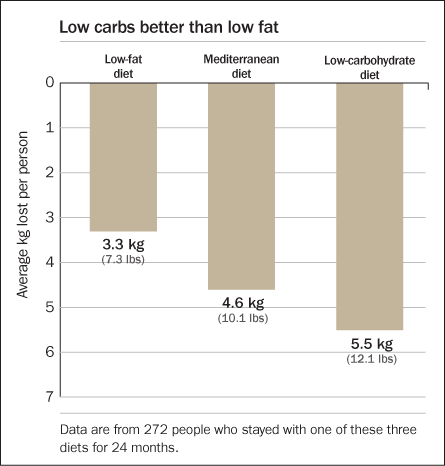Nutrition: Science news of the year, 2008
Science News writers and editors looked back at the past year's stories and selected a handful as the year's most interesting and important in Nutrition. Follow hotlinks to the full, original stories.
Food advice could be peanuts
Early exposure seems to lessen the risk of nut allergy
Consuming peanut butter in infancy appears to lessen, not increase, a child’s risk of developing a peanut allergy later (SN: 12/6/08, p. 8). The findings clash with some pediatric practices of the past decade and suggest that eating peanuts early might induce tolerance and head off the aberrant immune response that underlies an allergic reaction. “This work is extremely thought-provoking and raises the possibility that an approach of trying to avoid peanuts may be the wrong thing to do,” says Robert Wood, an immunologist and pediatric allergist at Johns Hopkins University in Baltimore.
Ginkgo, don’t bother The supplement ginkgo biloba fails to ward off Alzheimer’s disease or other forms of dementia any better than a placebo, a study shows (SN: 12/20/08, p. 8).
In the gut Overweight children host intestinal bacteria as babies that differ from those hosted by other kids, a new study finds (SN: 4/5/08, p. 221).

Low-carb works A diet that limits carbohydrate intake results in more weight loss and better cholesterol readings than regimens that restrict calories through low-fat and Mediterranean diets (SN: 8/16/08, p. 9).
Vitamin D value The health risks associated with vitamin D deficiency continue to grow, extending to heart attacks in men (SN: 7/5/08, p. 9) and possibly Parkinson’s disease (SN: 11/8/08, p. 18).
First lipid hormone An omega-7 fatty acid called palmitoleate works like a hormone. It mimics the health benefits of insulin and fends off diabetes (SN: 10/11/08, p. 15).
Add in potassium A new study finds that diets rich in potassium appear to protect muscle, and fruits and veggies are a primo source of dietary potassium (SN: 3/29/08, p. 205).

Helpful mushrooms White button mushrooms, the plain Janes of edible fungi, are actually quite stimulating: Their powder seems to jump-start the immune response of cells taken from mice, a new study finds (SN: 3/8/08, p. 157).
A burning, storage swap Eating and making fat are two separate activities in the brain of the roundworm C. elegans. If the functions are also controlled by separate parts of the human brain, new therapies for obesity might be able to tell the brain to burn extra calories instead of storing them as fat (SN Online: 8/5/08).
Antioxidants not anticancer Selenium, vitamin C and vitamin E don’t lower incidence of prostate cancer in two large trials (SN Online: 12/9/08).







